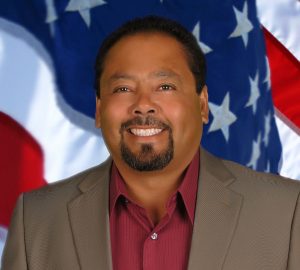Rudy Lopez, a candidate for the San Ysidro School District school board, and an ex-aide to former National City Mayor Nick Inzunza, wants the federal government to investigate whether or not a National City Councilman is in violation of federal law.
On Aug. 2, Lopez filed a complaint with the U.S. Office of Special Counsel, alleging that National City Councilman Jerry Cano — a federal employee— has violated the Hatch Act.

Named after former New Mexico Sen. Carl Hatch, “The Hatch Act of 1939,” also known as An Act to Prevent Pernicious Political Activities, bars certain federal employees from engaging in political activity.
In 2016, the Hatch Act forced two Northern California officials to resign from their elected office because of their jobs with the federal government, according to an East Bay Times news article.
Those elected officials —Jerrold Parsons of the John Sweet Unified School District in Rodeo, California and Pacifica Councilwoman Mary Ann Nihart — were both officials running in nonpartisan races. Under the Hatch Act, the election became partisan once a local political party endorsed their opponents, according to East Bay Times.
Both were faced with the decision to either resign from their jobs or leave the elected office in which they served, East Bay Times reported.
Lopez contends that the same argument can be made about Cano.
While political races in National City are technically nonpartisan, an election contest becomes partisan once a candidate gets the endorsement of a political party. Lopez said that’s how he thinks the law would affect Cano.
When Cano ran for re-election in 2016 against five other opponents, his council colleague Alejandra Sotelo Solis earned the endorsement of the local Democratic Party, which Lopez said immediately turned the race into a partisan one.
“Subject (Cano) has twice been successfully run for office and elected to city council in city of National City,” Lopez wrote in his complaint. “Both times opponents were endorsed by local Democratic Party making race defacto partisan.”
While in the middle of his re-election bid in 2016, which Cano eventually won, he told The Star-News that he was a contract specialist for the federal government.
Cano did not respond to request seeking comment for this story.
Employment and labor law attorney John Berry, a Washington, D.C. area based attorney with experience in the Hatch Act, said based on the Northern California cases, there is a chance Cano could be removed from office.
“…there is the possibility that the complaint could very well be prosecuted given the Bay area official case which appears similar to the non-partisan election issue (regarding Cano),” Berry said.
Berry added that a lot will depend on if the Office of Special Counsel has the time to devote to the investigation.
Even if the Office of Special Counsel removes a federal employee from office, the federal employee can still appeal it and possibly reverse their action, Berry said.













